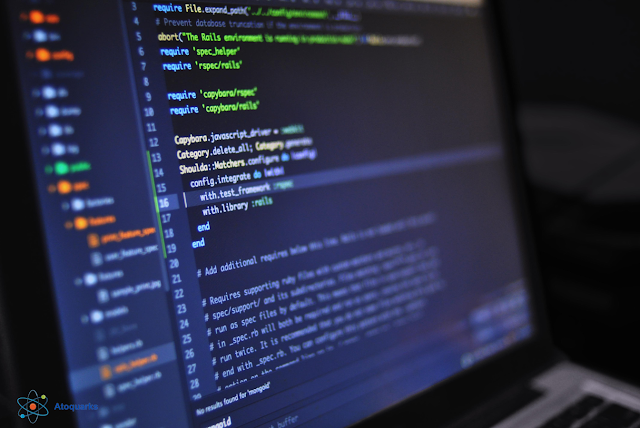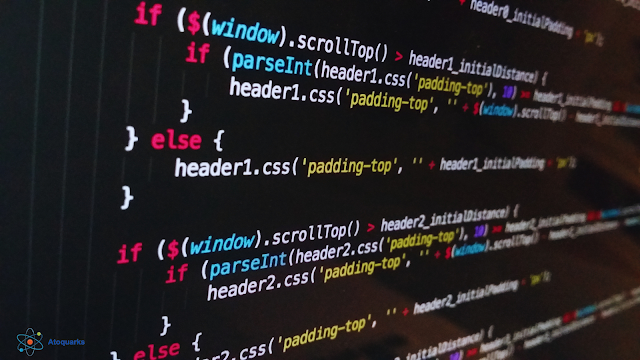Introduction
Did you know that 90% of the world's data has been created in the last two years alone? This explosion of data and the advancements in technology owe a great deal to the evolution and impact of programming. With computers, Smartphones, and self-driving cars, programming is the invisible force propelling us into the future. In today's rapidly evolving digital landscape, programming stands as a cornerstone of innovation and development. This article explores the journey of programming from its early beginnings to its current state, delves into fundamental concepts, highlights popular languages, and provides a roadmap for aspiring programmers.
Evolution of Programming
Programming's roots trace back to the 19th century with Ada Lovelace, who is often credited as the first computer programmer. Her work on Charles Babbage's Analytical Engine laid the groundwork for future developments. In the mid-20th century, Alan Turing's theoretical contributions provided a foundation for modern computer science. Early programming languages like Assembly and Fortran revolutionized how humans interacted with machines, enabling more complex and efficient computations.
The 1960s and 1970s saw the emergence of high-level programming languages such as C, which allowed for more abstraction and easier code management. Key milestones during this period included the development of structured programming and the introduction of concepts like object-oriented programming. These advancements made programming more accessible and powerful, paving the way for modern software development.
Today's programming is rich with contemporary languages like Python, JavaScript, and Swift, each designed to address specific needs and challenges. The rise of open-source software has democratized programming, enabling community-driven development and collaboration on a global scale. Platforms like GitHub have become hubs for innovation and shared learning.
Fundamentals of Programming
What is Programming?
At its core, programming is the process of creating instructions that a computer can follow to perform specific tasks. These instructions, known as code, are written in programming languages and executed by the computer's processor. Programming involves designing algorithms, which are step-by-step procedures for solving problems and transforming these algorithms into code.
Core Programming Concepts:
1- Variables, Data Types, and Operators: Variables store data, data types define the kind of data, and operators perform operations on data.
2- Control Structures: Loops (for, while) and conditionals (if, else) control the flow of execution in a program, allowing for repeated and conditional execution of code.
3- Functions: Functions are reusable blocks of code that perform specific tasks and can be called multiple times within a program.
Development Environments of Programming:
- Integrated Development Environments (IDEs): IDEs like Visual Studio Code, PyCharm, and Eclipse provide comprehensive tools for coding, debugging, and testing.
- Code Editors: Lightweight editors like Sublime Text and Atom offer a simpler environment for coding.
- Resources for Beginners: Websites like Codecademy, freeCodeCamp, and Coursera offer extensive resources for learning programming.
Popular Programming Languages
a) Python
Python is known for its simplicity and readability, making it a favorite among beginners and experienced developers alike. It's widely used in web development, data analysis, machine learning, and scientific computing.
b) JavaScript
JavaScript is the backbone of web development, enabling dynamic and interactive web pages. Popular frameworks and libraries like React, Angular, and Node.js extend its capabilities, making it essential for front-end and back-end development.
c) Java
Java is renowned for its portability, robustness, and extensive libraries. It's a staple in enterprise solutions and Android app development, offering versatility and scalability for large-scale applications.
d) Other Notable Languages
1- C++: Known for its performance and efficiency, C++ is used in system/software development, game development, and real-time simulations.
2- Ruby: Favored for its elegant syntax, Ruby is commonly used in web development, particularly with the Ruby on Rails framework.
3- PHP: PHP powers many dynamic websites and web applications, especially in conjunction with content management systems like WordPress.
Programming Paradigms
I) Procedural Programming
Procedural programming focuses on a sequence of steps or procedures to solve a problem. It's straightforward and easy to understand, making it suitable for beginners. Examples include C and early versions of BASIC.
II) Object-Oriented Programming (OOP)
OOP organizes code into objects, which represent real-world entities. Key concepts include classes, objects, inheritance, and polymorphism. OOP's modular approach makes it easier to manage complex programs. Languages like Java, C++, and Python support OOP.
III) Functional Programming
Functional programming treats computation as the evaluation of mathematical functions and avoids changing-state and mutable data. It's particularly useful in concurrent and parallel programming. Languages like Haskell and functional features in Python and JavaScript exemplify this paradigm.
IV) Other Paradigms
- Declarative Programming: Focuses on what to do rather than how to do it. Examples include SQL and HTML.
- Event-Driven Programming: Centers around events and event handlers, commonly used in GUI applications and JavaScript.
Programming in Practice
- Software Development Life Cycle (SDLC)
SDLC encompasses the stages of software development: planning, development, testing, deployment, and maintenance. Each stage is crucial for delivering high-quality software that meets user needs.
- Agile and DevOps
Agile methodologies promote iterative development and collaboration, while DevOps practices emphasize automation and integration between development and operations teams. Together, they enhance productivity, quality, and time-to-market.
- Version Control
Version control systems like Git track changes to code, facilitate collaboration and enable rollback to previous versions. GitHub, GitLab, and Bitbucket are popular platforms for version control and collaborative development.
Advanced Topics in Programming
1- Data Structures and Algorithms
Understanding data structures (arrays, linked lists, trees) and algorithms (sorting, searching) is fundamental for efficient coding and problem-solving.
2- Artificial Intelligence and Machine Learning
Programming plays a pivotal role in AI and ML, with languages like Python, and R, and libraries such as TensorFlow and PyTorch driving advancements in these fields.
3- Cybersecurity
Secure coding practices are essential to protect software from vulnerabilities and attacks. Common practices include input validation, encryption, and regular security audits.
Future of Programming
Emerging technologies like quantum computing, blockchain, and the Internet of Things (IoT) are set to revolutionize programming. Staying updated with these trends is crucial for future programmers. The role of programmers is evolving, requiring continuous learning and adaptation. Future programmers will need to master new tools, languages, and paradigms to remain relevant and innovative.
Conclusion
From its historical roots to its modern advancements, programming has continuously shaped our technological landscape. Understanding fundamental concepts, popular languages, and programming paradigms is essential for anyone looking to enter this dynamic field. Programming is not just about writing code; it's about solving problems, creating solutions, and driving innovation. As technology continues to evolve, the importance of programming in shaping the future cannot be overstated. Whether you're a beginner or an experienced developer, there's always something new to learn in programming. Start your journey today or take your skills to the next level, and be a part of the exciting future of technology.
#programming #programming_fundamentals #programming_languages #programming_paradigms #data_creation #programming_history #ada_lovelace #alan_turing #assembly_language #c_language #structured_programming #object_oriented_programming #python #javascript #swift #open_source_software #programming_concepts #java #c_plus_plus #ruby #php #programming_practices #devops #advanced_programming #data_structures #algorithms #artificial_intelligence #machine_learning #cybersecurity #quantum_computing #blockchain





